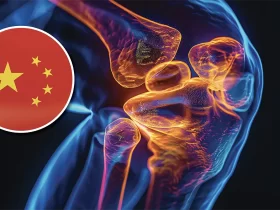Donald Trump reignited controversy with explosive statements from the White House. The former US president claimed that the use of Tylenol (paracetamol or acetaminophen) during pregnancy could be directly linked to the development of autism in children. He said this with complete certainty… but without solid evidence to back up such a claim.
The bombshell dropped while he was accompanied by Robert F. Kennedy Jr., a well-known anti-vaccine activist, and other senior health officials. Trump warned that the FDA will notify doctors about a “high risk” of autism associated with the world’s most widely used pain reliever. He even asked pregnant women to avoid it, except in cases of severe fever.
The problem: the science does not support this.
For decades, rigorous studies have shown that acetaminophen is virtually the only safe option for controlling fever and pain in pregnant women. Common alternatives such as aspirin or ibuprofen can cause serious complications in pregnancy. Furthermore, leaving a fever untreated can be equally or more risky for the mother and baby.

Even so, Trump went further. He not only attacked Tylenol, but also suggested delaying childhood vaccinations—including hepatitis B—until adolescence, ignoring the fact that this strategy had already nearly eradicated the infection in children. “Too many fluids, too many substances go into that baby,” he said, without citing scientific evidence.
Meanwhile, the medical community reacted with outrage. The American College of Obstetricians and Gynecologists called the White House’s position irresponsible and dangerous, as it simplifies an extremely complex problem. Experts point out that autism is a multifactorial condition, influenced by more than 100 genes and various environmental factors, and that so far there is no proven “single culprit.”
Tylenol manufacturer Kenvue also came out in defense of its product:
“Independent science shows that acetaminophen does NOT cause autism. Denying this is not only false, but it puts the health of millions of pregnant women at risk,” the company said.
Adding to the confusion, the FDA announced that it will approve leucovorin, a drug used to counteract the toxicity of chemotherapy, as an experimental treatment for some cases of autism linked to folate deficiencies. Although the initial studies are small and preliminary, Trump presented it as if it were an immediate answer to the “autism puzzle.”
Meanwhile, official figures show that autism diagnoses in the US continue to rise: today, approximately 1 in 31 children receive this diagnosis, compared to 1 in 68 in 2015. But specialists emphasize that this increase is largely due to improved detection, changes in diagnostic criteria, and growing social awareness, rather than a real increase in incidence.
In short, Trump has placed Tylenol and autism at the center of political and media debate, even though scientific evidence refutes his claims. For experts, the most worrying thing is not only the confusion generated, but also the impact on millions of families who now doubt a drug that has been considered safe for decades.








































Leave a Reply